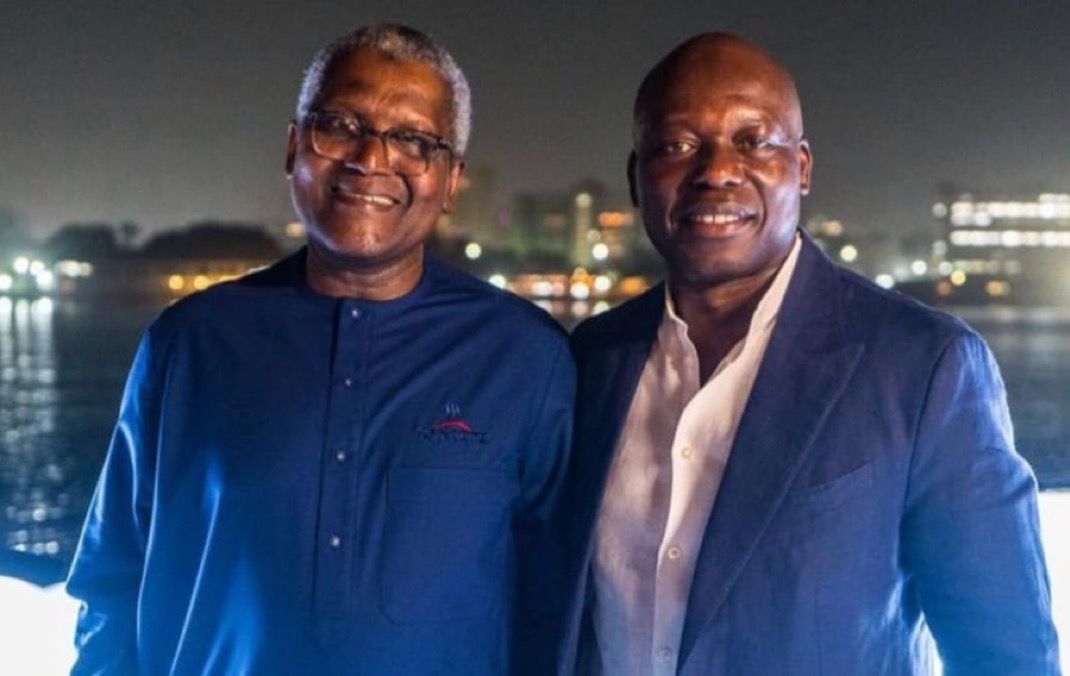
“1 Million Each for 48,000 Ekiti People?” – Isaac Fayose Sparks Political Firestorm with Bold Claim about Next Governor

Ekiti State’s political space has once again been thrown into a frenzy after businessman and political commentator, Isaac Fayose, made a sensational claim about what awaits the people in the next gubernatorial administration. In a viral statement that has sent social media buzzing, Fayose boldly declared that the incoming governor of Ekiti State will distribute ₦1 million each to 48,000 citizens over a span of 48 months, adding a sharp jab at the current administration, which he accused of mismanaging the state’s commonwealth.
According to Fayose, who is the younger brother of former governor Ayo Fayose, this alleged incoming leader plans to redefine governance by putting tangible cash directly into the hands of ordinary citizens — a promise that many see as either a populist masterstroke or a political illusion too good to be true. His exact words, now making rounds online, read: “Our next incoming governor in Ekiti will be giving 1 million Naira each for 48,000 Ekiti people in 48 months, forget this present governor carrying the state’s common wealth.”
The statement, dramatic as it sounds, has ignited a storm of reactions across various quarters, from excitement to skepticism. Some residents of Ekiti, a state known for its politically conscious population, see the claim as a sign of hope, a potential turning point for people who feel left behind by successive governments. Others, however, believe it’s nothing more than political showmanship, timed to stir emotions ahead of the 2026 gubernatorial elections.
For many, Fayose’s words resonate with frustration toward the incumbent government, led by Governor Biodun Oyebanji, who has faced his share of criticism for what some citizens perceive as elitist governance and limited economic inclusivity. Fayose’s jab about “carrying the state’s common wealth” appears to reinforce the narrative that the average Ekiti resident is yet to feel the impact of the state’s resources in their daily lives.
Still, the idea of a future governor doling out ₦1 million each to 48,000 citizens has raised eyebrows, not just for its populist appeal but for its staggering financial implication. A quick calculation shows that such a promise would amount to a whopping ₦48 billion over four years — an amount that would significantly impact the state’s budget and development agenda. Ekiti State’s annual budget hovers around ₦100 billion, meaning that almost half of a yearly budget could theoretically go into this welfare-style disbursement if the claim were to hold true.
Economists and political analysts have already begun dissecting the statement. While some say it highlights the growing desire for direct empowerment among Nigerians, others argue it exposes how politics has increasingly become a game of impossible promises. Political analyst Damilola Ogunyemi described Fayose’s remark as “a reflection of the desperation to win hearts in an economy where people are hungry and hope is scarce.”
He added, “The fact that such a statement can trend shows that Nigerians are yearning for financial relief, but it also reveals how political discourse has been reduced to handouts instead of sustainable development plans. If anyone promises to share ₦1 million to 48,000 people, we should ask where that money will come from — loans, federal allocations, or the same commonwealth he is accusing others of misusing?”
Yet, some supporters of the Fayose political family defend Isaac’s statement as a bold vision for grassroots empowerment. They argue that if properly managed, such a scheme could stimulate micro-economic activity across local communities, empowering small businesses, farmers, traders, and artisans. “What’s wrong with direct empowerment?” one online supporter wrote. “Instead of wasting billions on projects that don’t impact lives, why not give the people the money directly and let them create jobs for themselves?”
On social media, the reactions have been nothing short of explosive. Ekiti residents on X (formerly Twitter) and Facebook have turned the statement into a trending topic, with memes, debates, and fiery exchanges dominating timelines. Some joked about relocating to Ekiti just in time to benefit from the supposed million-naira largesse, while others called for serious scrutiny of any political figure making such grand claims.
“₦1 million each for 48,000 people? Even the federal government hasn’t managed that under any empowerment scheme. Abeg, this one na election season talk,” one user posted. Another wrote, “I love the dream, but Ekiti needs hospitals, good roads, and jobs, not just cash handouts.”
Amid the uproar, there has been no official response from Governor Oyebanji or his media team, who may prefer to treat the statement as a political sideshow. However, insiders suggest that the administration is monitoring the public reaction closely, as Fayose’s words could subtly shape voter sentiment ahead of the next elections.
Observers also point out that Isaac Fayose has a history of making provocative political statements. Known for his outspoken nature and strong social media presence, he often comments on governance issues across Nigeria, sometimes drawing praise for speaking “truth to power,” and other times facing backlash for exaggeration or bias. Whether this latest outburst is grounded in insider knowledge or political mischief remains unclear.
Still, the underlying message of his remark reflects a larger frustration in Nigerian politics: the perception that leaders enrich themselves while citizens remain impoverished. The notion of a “governor who will share ₦1 million each” taps into a long-standing yearning for inclusivity and fairness — a symbolic promise that someone, someday, might actually prioritize the people’s pockets over elite interests.
But beyond the emotions, the claim raises critical questions about governance philosophy. Should leadership be about direct cash disbursement, or should it focus on building infrastructure and institutions that empower citizens sustainably? Political observers argue that while empowerment schemes can provide short-term relief, they rarely create lasting economic transformation. For a state like Ekiti, where agriculture, education, and tourism hold immense potential, experts believe strategic investment in these sectors would yield far better dividends than mass handouts.
Still, Fayose’s statement has achieved what it perhaps intended — to get people talking. In a political climate where trust in government is low and economic hardship is biting harder than ever, a promise like ₦1 million per citizen becomes irresistible political currency. It captures the imagination, feeds hope, and provokes debate — three ingredients that shape the early stages of any election cycle.
Whether Isaac Fayose’s declaration was a political prophecy or a social media stunt, one thing is certain: it has thrust Ekiti back into the national conversation. As the 2026 governorship race slowly gathers steam, the people of Ekiti will be watching closely to see whether the talk of direct empowerment evolves into a serious campaign promise — or fades away as just another viral soundbite in Nigeria’s theater of politics.
For now, the streets of Ado-Ekiti and beyond buzz with mixed emotions — hope, disbelief, amusement, and curiosity. Could the next governor truly gift ₦1 million to 48,000 people? Or is this simply another lofty dream in the ever-entertaining drama of Nigerian politics? Time, as always, will tell.
“Our next incoming governor in Ekiti will be giving 1 million Naira each for 48,000 Ekiti people in 48 months, forget this present governor carrying the state’s common wealth” - Isaac Fayose 😳🙆🏼♂️ pic.twitter.com/xmTMWGfhgC
— Oyindamola🙄 (@dammiedammie35) October 28, 2025


